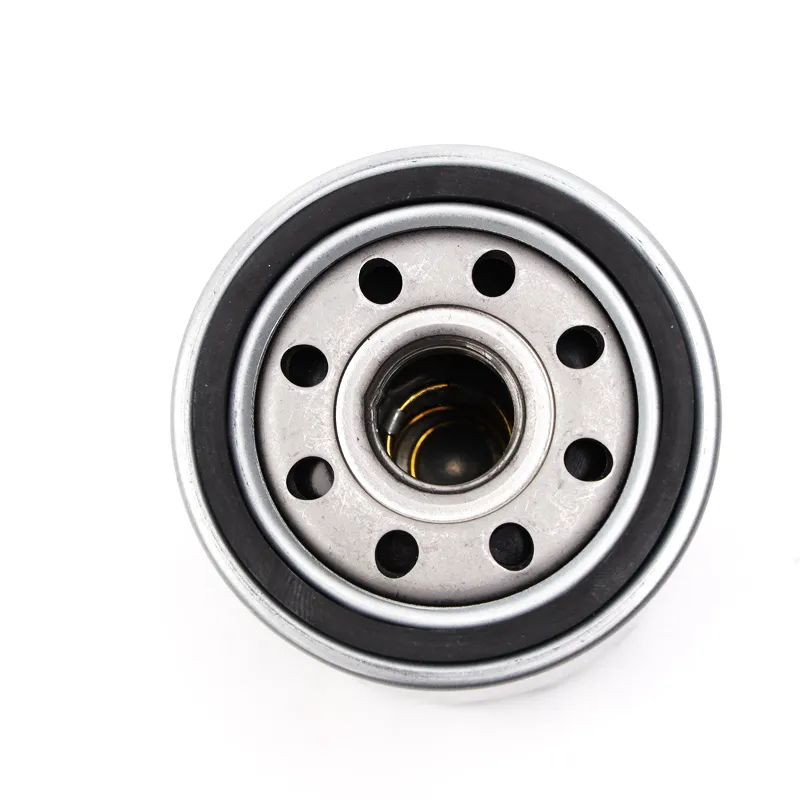Nov . 12, 2024 13:07 Back to list
automobile air filter
The Importance of Automobile Air Filters
In the realm of automobile maintenance, few components are as often overlooked as the air filter. While drivers routinely check oil levels, tire pressures, and brake conditions, the air filter is frequently neglected. However, keeping a vehicle’s air filter in optimal condition is crucial not only for the longevity of the engine but also for the overall performance of the vehicle.
What Is an Air Filter?
An air filter is a fundamental part of an automobile's intake system. Its primary function is to prevent dirt, dust, debris, and other contaminants from entering the engine. By filtering out these impurities, the air filter ensures that only clean air is mixed with fuel for combustion, thereby improving the engine's efficiency and performance.
The Role of Air Filters in Engine Performance
The quality of the air that enters an engine directly affects its performance. A clean air filter allows for better airflow, which is essential for proper combustion. When an air filter is clogged or dirty, the engine struggles to draw in air, leading to a rich fuel mixture where more fuel is burned than air. This not only reduces engine efficiency but can also decrease power and acceleration, causing the driver to feel a lack of responsiveness in their vehicle.
Moreover, a dirty air filter can lead to engine wear. When contaminants enter the engine, they can cause abrasion on vital components, leading to premature wear and potential engine failure. Regularly replacing or cleaning the air filter can prevent this wear, extending the life of the engine and reducing repair costs.
Signs of a Clogged Air Filter
Recognizing when an air filter needs replacing is crucial. Some common signs include reduced fuel efficiency, unusual engine noises, engine misfires, and a noticeable decrease in acceleration. Additionally, a vehicle equipped with onboard diagnostic systems may trigger a warning light if airflow problems are detected, indicating that the air filter should be checked.
automobile air filter

Maintenance and Replacement
Typically, manufacturers recommend inspecting the air filter every 12,000 to 15,000 miles, but this figure can vary based on driving conditions. Factors such as driving in dusty areas, frequent short trips, and stop-and-go traffic can necessitate more regular checks. In such cases, drivers should consider replacing the air filter every 6,000 to 10,000 miles.
Replacing an air filter can be a simple task, depending on the vehicle model. Many drivers can perform the replacement themselves with minimal tools. It's as simple as locating the air filter housing, removing the old filter, and inserting a new one. For those less inclined to DIY maintenance, professional mechanics can perform this task during routine servicing.
The Benefits of Regular Air Filter Maintenance
The benefits of maintaining a clean air filter extend beyond just engine performance. Improved fuel efficiency translates to cost savings at the pump, allowing drivers to get more miles per gallon. Additionally, a well-maintained air filter contributes to lower emissions, making it an environmentally friendly choice. In a time when awareness of our environmental impact is rising, ensuring that our vehicles run cleanly and efficiently is more important than ever.
Furthermore, a clean air filter can enhance the overall driving experience. With better engine performance, drivers can enjoy smoother rides, better throttle response, and improved acceleration, making every journey more enjoyable.
Conclusion
In summary, the air filter is a small but mighty component of an automobile's engine system. Its role in maintaining clean air flow is vital for optimal engine performance, efficiency, and longevity. Regular inspections and timely replacements of the air filter can lead to significant benefits, including improved fuel economy, reduced emissions, and enhanced vehicle performance. By prioritizing air filter maintenance, drivers can ensure that their vehicles operate at their best, ultimately leading to a more enjoyable and economical driving experience. Make it a habit to check this often-overlooked component; your engine will thank you for it.
-
Toyota Corolla Hatchback Cabin Air Filter – High Efficiency & Easy Installation
NewsJul.08,2025
-
Premium Canister Fuel Filter Supplier High Quality Oil Filtration Solutions
NewsJul.08,2025
-
Premium Car Filter Oil Solutions Leading Car Oil Filter Exporter Hyundai Car Oil Filter Exporters
NewsJul.08,2025
-
Buy 17x21x1 Air Filter – Improve Air Quality & HVAC Efficiency Affordable Air & Cabin Air Filter Cost
NewsJul.07,2025
-
High-Performance Filter Element Fuel – Durable, Efficient & Cost-Effective Solutions
NewsJul.07,2025
-
High-Quality Engine Filter and Cabin Filter for Superior Airflow Affordable Cabin and Engine Air Filter Cost
NewsJul.07,2025


